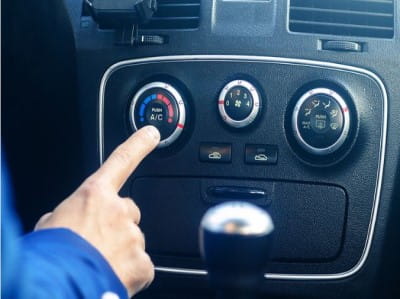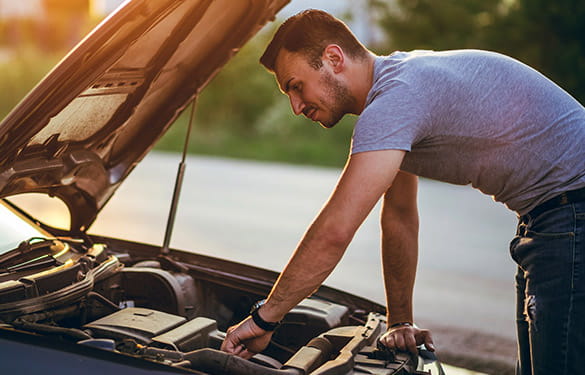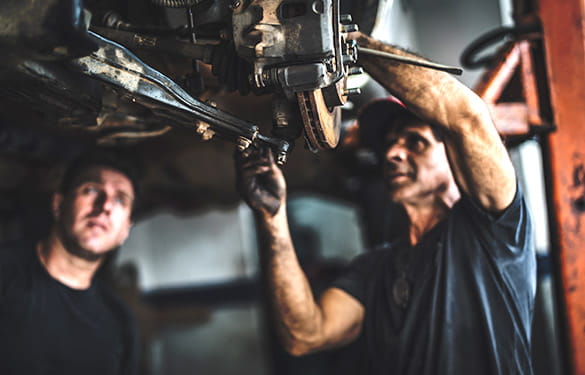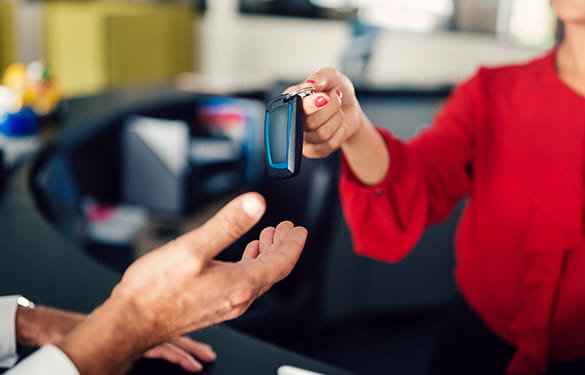IS REGULAR VEHICLE MAINTENANCE WORTH IT?
Matt Hill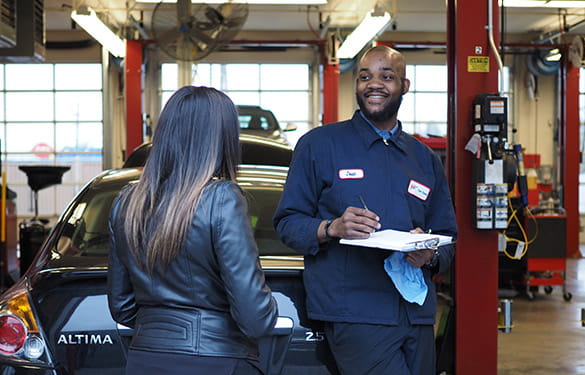
The goal of car maintenance is to routinely assess and address your vehicle’s condition to prevent more costly or damaging repairs down the road. A minor problem that you notice now will be costlier and more difficult to repair if left unattended. For example, noise from your brakes, a check engine light or any warning light should be addressed as soon as possible. Continuing to drive through a shaky ride will, over time, cause more damage to your vehicle.
My philosophy on affordable car maintenance includes three main tenets: research your car’s needs, attend to your car at home when you can and remember that safety has no price tag.
The first step to safeguarding against overpriced maintenance is to avoid a situation where a mechanic might pressure you into too-frequent maintenance. For example, a fuel injector cleaning and engine flush is not necessary every time you get an oil change. Take a look at your owner’s manual, where recommended time frames are typically provided for each major repair. I’d also recommend saving your invoices in a folder where they can be easily referenced to remind your when you last had certain repairs, like cabin air filter replacement or brake service. Arm yourself with this knowledge when discussing maintenance options with your mechanic.
Many routine maintenance items can be taken care of in the comfort of your own driveway. The first and most approachable step is to keep an eye on your fluids: oil, radiator, transmission, power steering, brake and washer fluid. These fluids can be easily checked either visually or with a dipstick, and replacement of the fluids is simple and affordable. A quick internet search or a look through your owner’s manual will show you where you can find each of these fluids under the hood. If you’re feeling more ambitious, maintenance items such as oil changes, tire rotation and brake pad replacement can be done at home as well. You will need to invest in a few tools, such as a car jack, drain pan and wrenches, but most of these can be easily found at your local auto store.
Proper tire pressure is often overlooked, but it is essential to your gas mileage and your safety. Your tire pressure can be easily checked with a tire pressure gauge. The side wall of your tire shows the maximum pressure your tires should be set, and air is available at most gas stations or car shops for little to no cost. Under-inflated tires, squeaking brakes and damaged headlights should also be attended to right away.
And lastly, always keep safety as a top priority. If your vehicle has experienced damage that results in a safety concern, the repair is always worth the price tag.
More Resources Request a Quote Locate an Agent
